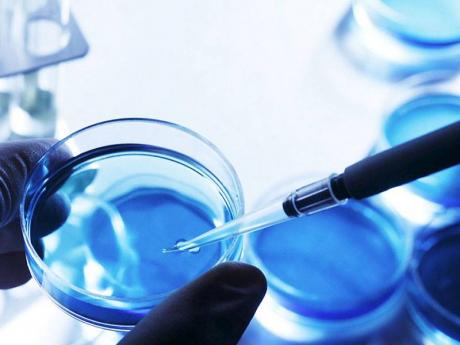Jamaican & Chinese scientists forge partnership
Henry Lowe's Bio-Tech R&D Institute and Anticancer Biotech (Beijing) Company last Thursday forged an agreement for the further exploration and development of Jamaica's indigenous plants and for technology transfer and product distribution in China and Asia.
Dr Lowe, a well-known Jamaican scientist, has dedicated his life to studying the medicinal chemistry in the country's indigenous plants. As many as 84 of the world's 160 medicinal plants are indigenous to Jamaica. Lowe has been able to identify bioactive molecules in several medicinal plants and has been featured more recently for his work with the Jamaica Ball Moss. Nine neutraceutical products and five medicinal teas have also been produced by his laboratory.
Private sector has failed
During the signing ceremony, Lowe bemoaned the fact that, unlike other countries, Jamaica has not been leveraging its advantage in medicinal plants into wealth creation.
"Jamaica made lots of stride but has not concretise this into wealth creation. That is what China has done, and other countries, and failure is not just with the Government but with the private sector, because we are seen as a screwdriver industry. Unless we can be creative, it will be only talk," he said to the audience gathered at Eden Gardens in St Andrew.
Anticancer Biotech (Beijing) Company was represented by its managing director, Dr Meng Yang, who explained that he started his career as a surgeon but had a burning desire, to save more lives. Following this desire he went to Japan to learn more about cancer research and gained his PhD in these studies under the supervision of some leading scientists. He returned to China in 2008 to set up his biotechnology company, which is dedicated to cancer and HIV/AIDS research and drug development.
Real-time evaluation
Yang indicated that so far his company has established 133 patents, and with several millions of US dollars in research grants. Yang's company has also developed and refined several imaging techniques, using animal models, that track how cancer tumours grow and metastasise in the body. The techniques are able to assess tumour response to therapeutics using real-time evaluation.
Yang said that some time in the near future he is hoping to evaluate some of Lowe's compounds using this real-time technique.
Other expected objectives of this partnership are:
Collaboration on HIV/AIDS research and drug discovery.
Transfer in vitro and in vivo molecular imaging technologies for preclinical study.
Training and technology transfer between Anticancer Biotech (Beijing) and Bio-Tech R&D Institute of young scientists and physicians.
Leveraging stem-cell research knowledge and expertise, particularly in developing cosmeceuticals.
Critical support for the Jamaica-China collaboration also came from other local scientists such as Prof Gerald Lalor, JAMPRO, through President Sancia Bennett Templer; Jamaica Cancer Society, through Chairman Earl Jarrett; the Medical Council of Jamaica, through Chairman Dr John Hall; University of Technology, through President Prof Errol Morrison; and the University of the West Indies, through Prof Ishenkumba Kahwa, dean of the Faculty of Pure and Applied Sciences, who indicated that in the fall semester the faculty will have a name change to the Faculty of Science and Technology, reflecting its renewed effort to train student scientists to better function in the real world environment.
Eulalee Thompson is freelance health editor and a therapist & counsellor in private practice; email: eulalee.thompson @gleanerjm.com.

